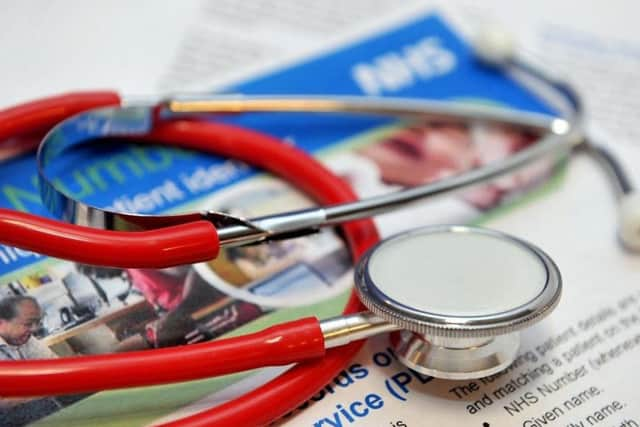Melody Redman: My diagnosis after years as a doctor - the NHS is desperately in need of treatment
Our team had been looking after him for a while; he had been extremely unwell but was now recovering well.
I was immersed in the urgent work that needed to be done for our other patients, but the humanity within that interaction provided me with a brief reward that got me through the rest of the day. That was one of my favourite moments at work in the last year.
Advertisement
Hide AdAdvertisement
Hide AdOf course, not every day contains a big success story like this.


It is so important to retain compassion and value every patient and their loved ones as individuals.
But this is too often a precarious balancing act that is continually tested within the limitations of the service we can provide in a busy NHS.
As we move further into winter, healthcare staff across the country are coming under pressure to provide appropriate care for all of our patients. Recent figures by the British Medical Association show that hospital emergency care departments in England are set for our worst winter on record.
Advertisement
Hide AdAdvertisement
Hide AdWe know that there is now an ongoing crisis in the NHS, but as the snow falls, the ice sets, and the sky darkens, many of my colleagues will have that all too familiar apprehension about what lies in store in the coming months.
My first hope for the NHS for 2019 is sufficiency. In my personal practice, I still strive for excellence. I want to be the best doctor I can be – to patients, colleagues, and students. I know this is the case for so many of my colleagues as well.
For the wider NHS, however, my hope is for sufficiency; namely enough resources and enough staff.
Sufficient so that no one comes to harm as a result of long waits to be seen. Sufficient so that people receive the care they need when they need it. Sufficient so that staff aren’t internally torn apart by the desire to provide care to a level which they cannot.
Advertisement
Hide AdAdvertisement
Hide AdI wish I could hope for excellence, but for now, I will settle for sufficiency.
My second hope for the NHS for 2019 is prevention. In addition to providing emergency care, we must get better at preventing causes of premature death and ill-health.
The BMA are calling for the prioritisation of prevention. This makes sense on all counts. Preventable ill-health is estimated to cause half of all GP appointments, 64 per cent of outpatient appointments and 70 per cent of all inpatient bed days.
We need to reduce our smoking and alcohol intake, as well as getting more exercise and improving our diets. Improving prevention should be a key goal for 2019 and beyond.
My third hope for the NHS for 2019 is better technology.
Advertisement
Hide AdAdvertisement
Hide AdTechnology in the NHS has received much media attention lately and has the potential to facilitate better community care where patients can spend more time with their loved ones in normal environments.
Technology may allow us to share information better within the hospital and the community. However, with new technology comes the potential for harm and great risk; it is an area which must be carefully evaluated and may be a double-edged sword.
With our old-fashioned pagers, reams of paperwork and soon-to-be-extinct fax machines, the idea of wearable and telehealth technologies may seem grossly mismatched to our day-to-day work in the NHS.
Also, we must never forget the importance of the human touch and face-to-face care. We need to get better at using technology in the NHS, but do this in a way where we are careful to ensure that patient care is improved, not compromised.
Advertisement
Hide AdAdvertisement
Hide AdIt has been 10 years since I started medical school and began my journey of learning in the NHS. We have also celebrated the 70th anniversary of the NHS this year.
I really hope that 2019 is a good year for the NHS. That instead of a year-round crisis, we see year-round improvements with the money promised by the Government making its way to the services that need it most.
This way we can keep on providing the life-changing care that we are here to do.
Melody Redman is a junior doctor in children’s medicine in Yorkshire and is a BMA junior doctor representative and member of the BMA Board of Science.